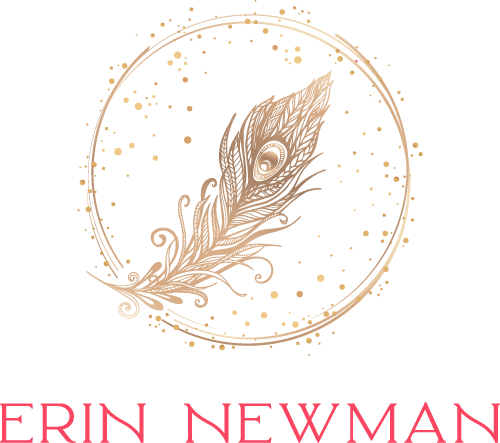You know how sometimes you read something, and then you hear it in a conversation with a friend, and then you see it in a Facebook post, and it all sort of comes together into a little bit of insight. An insight that I am, of course, sharing with you, in the hopes that it can help to free you, too.
Happiness can’t be my goal
Realizing that I could be happy was a very important first step in my personal development. Next I understood that I needed to work towards happiness and make it a daily choice.
But then, almost conversely, the next step after that was understanding that chasing happiness will never work.
If you’re so smart, why aren’t you happy?
In fact, the more I chased happiness, the more elusive it seemed. If I had a good life (and I do), then why wasn’t I happy, all of the time? It seemed like happiness became just another way for my ego to hit me over the head, as in, “Erin, you’re doing all of this work, but you’re still not happy all of the time. What’s wrong with you?”
And even though I’d read all of the books, done all of the research, and worked, worked, worked towards happiness, it still fled from me. I wasn’t all sunshine and rainbows, all of the time.
But once I realized that happiness wasn’t my end goal…then an enormous amount of guilt was lifted from me. I still have to work on myself. Every day. But not with the goal of being happy.
Because happiness, it turns out, isn’t just that sort of sunshine and rainbows feeling. It’s something deeper, a feeling of contentment with your life, the understanding that what you’re doing matters to both you and to others around you. The realization that you can be kind to others. Of course, the sages have been saying this for ages:
If you want others to be happy, practice compassion. If you want to be happy, practice compassion. ~Dalai Lama
And now the research from positive psychology is discovering the same thing. Turns out that happiness is actually comprised of many different elements, only one of which we recognize as that sunshine and rainbows feeling.
So what can we work on, then, if not happiness itself?
Turns out, that’s been studied, too. And positive pscyhologist Martin Seligman named these elements PERMA.
Positive Emotion: the types of feelings that we normally associate with happiness: peace, gratitude, satisfaction, pleasure, inspiration, hope, curiosity, or love. (And which can be cultivated. A gratitude journal or the 3 Good Things exercise can really help here.)
Engagement: if you’ve read anything about “finding flow”, then you’ll know this one. It means being focused and interested in the work (however you define that) that you do.
Relationships: how do your closest relationships look? Are they fulfilling? Do you have friends and family with whom you feel connected?
Meaning: do we feel connected to something larger than ourselves? Are we doing work that helps others in some way or helps the community? Are we helping our family or friends? Where do you derive meaning?
Accomplishment: what goals do you have, and are you steadily pursuing them? What smaller sub-goals have you already met?
When you break it down like that, then you start to realize that happiness can be worked towards simply (simply, ha!) by working through each of those elements in your life. You can see that your life does have meaning. You can set about accomplishing goals, even if they are taking time and energy. You can be kind in your relationships (and learn new techniques for doing so.)
And from those things, you’ll derive contentment.
Which to me, is so much more freeing. Set up my plan (as defined in my daily process), work towards it on a daily basis, and then not worry about meeting some expectation – mine or others – of happiness. I can just…be.
Awesome, right?
Where to start? How to work on all of these at once?
Pick one element. Take some time to write about it, see if there are things that you think you’d like to improve. And then set yourself little mini-goals to work towards. Even if that area is relationships, what does that mean for you? Would you like to be kinder to your spouse? To your children? What would that look like? How would you go about implementing that? What tools would you use to get there? What support would you need in order to bring about that goal? Whom could you ask for advice and help? How would you know if you’ve achieved your goal?
Goal-setting isn’t only for work:
We seem to be great at goal-setting in the workplace, but in terms of personal improvement, we sort of let things just slide by us. Self-improvement gets pushed to the bottom of the pile of things to do. But perhaps today will be the day that you can say:
“Today, I’m waking up. Today, I’m choosing to do things differently, to make a plan for myself and to follow through, even when it’s hard, even when no one else can hear the drumbeat. Today is for me.”



